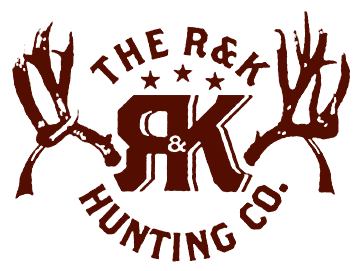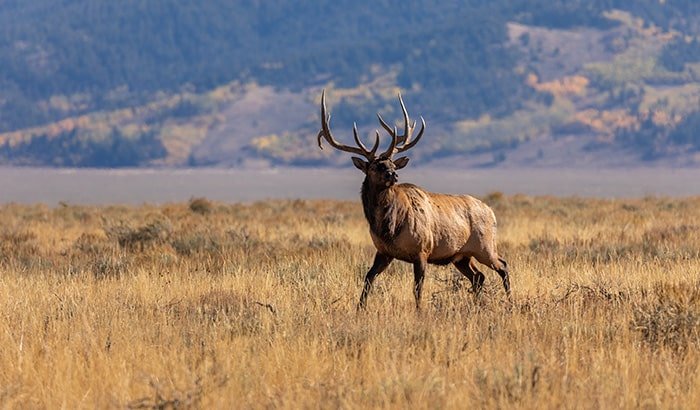When you’re getting ready to hunt in Wyoming, you may wonder if you can bait big game. It’s probably no surprise to discover that Wyoming law addresses this area. Here is what you need to know.
The state of Wyoming is very selective as to who is allowed to bait big game. In summary, baiting game is illegal in Wyoming. Only those who are blind or depend on wheelchairs are allowed to bait game for hunting. Such individuals need to have hunting permits and are required to clear their intention to bait hunt with the state before taking any action.
What is Baiting?
Wildlife constantly searches for viable food sources. In the wild, animals like deer are drawn toward valleys and planes where plant growth is abundant. Not all food is created equal for many game animals; some food is too sweet to resist.
One of the most popular treats for wild animals is corn. This grain is an irresistible delicacy for many trophy animals – and hunters know it. This is why the hunting industry is teeming with baiting devices to lure in animals for the kill.
Most bating devices are placed a week or so before the intended hunt. The hope is to attract animals to the regular corn disbursements. The long time gap between placement and hunting gives human scent enough time to clear and allows time for animals to discover the regular corn disbursement from the dispenser.
Within a few days, wildlife will begin catching on to the corn disbursement pattern. They will linger in the area waiting for more corn to drop. There is no guarantee that any animal worth hunting will discover the bait. Still, this method is reliable enough that many hunters nationwide consistently use it to get trophy animals.
After some wildlife has become accustomed to the frequent drops of food, a hunter can perch nearby and wait for the perfect animal to walk into view.
Why Can’t I Bait Game in Wyoming?
In the early 2000s, the state of Wyoming enacted a law that prevents hunters from baiting game animals on private and government property.
Within the Hunting Community, bating is seen as an ethically questionable method. Many hunters view baiting game animals as cheating. The baiting technique uses hunger to attract animals into a killing field, the act of which many find unsportsmanlike.
Wyoming has a history of being particular with the way it manages wildlife. This state is home to one of the largest animal preserves in its latitude, Yellowstone national park. Many local residents are keen to do what they can to preserve the natural ecosystem, including pushing back against baiting practices.
Luring animals to an area with bait piles is a natural enough way to hunt deer conveniently, but what are the impacts on wildlife? Concerns about baiting animals are not oriented toward making animals dependent on human feeding so much as this practice creates an unbalanced ecosystem that can harm wildlife.
More deer in one area can affect the natural growth and balance of edible foods. When deer aren’t feasting on the bait left by hunters, they are grazing nearby, which depletes regions of plants that other living things rely on to survive.
A more natural disbursement of animals is more productive at maintaining a healthy and balanced environment where plant growth and consumption undergo regular cycles.
Another significant concern about baiting game animals is the possibility of spreading infectious diseases. Most animals spread out due to necessity, migrating to areas where food is more abundant.
Where larger populations gather, there are higher chances of spreading diseases that will harm wildlife. Some states restrict baiting when there are higher cases of disease among wildlife. Others, like Wyoming, ban it almost completely.
What Alternatives Are There To Baiting Game?
Laws in Wyoming don’t allow hunters to shortcut success by baiting. Instead of baiting, hunters should focus on more active methods of finding deer. This involves scouting and old-fashioned waiting.
One of the most challenging – yet most rewarding – parts of hunting is finding a good animal. Hunters will spend their entire lives learning the spot signs of wildlife and discovering favorite locations for grazing and resting.
Animals are constantly on the move, so tracking may be done more often than hunting.
Some tips for scouting are:
- Look for signs like tracks and droppings
- Stay near fertile areas
- Look for water sources
Seasoned hunters will have even more ways to find animals; tagging along with a good friend or guide familiar with the craft will likely lead to a higher chance of success.
When you’re scouting, practice leave no trace. This helps in two ways
- It keeps the environment clean.
- It limits the possibility of wildlife discovering your presence.
Most game animals are used to being prey and so are startled easily. The best way to find a good game animal is to be as unobtrusive in the environment as possible.
Can I Bait Big Game on Private Property In Wyoming?
It may seem that private property provides its owners more opportunities to hunt the way they like. This isn’t the case. The foremost reason is that animal populations are considered to be the property of the state.
Without tag regulations and enforcement, private landowners could lure animals onto their property and hunt an unlimited number of animals which could harm wildlife populations.
While there may be cases where hunting animals is legal – like if they pose a nuisance to farming or related activities – there are laws in place that punish hunters who hunt illegally.
The best and only legal way to hunt is to go through the proper legal channels.
Big Game Hunting With R&K Hunting
Sometimes finding the right kind of game animal is hard, even for seasoned hunters. One of the best ways to guarantee success on a hunt in Wyoming is to go with a private guide who scouts the land frequently and is familiar with the patterns of wildlife.
R&K Hunting offers these services to any hunters wanting a great experience hunting big game. Contact us today to set up your very own private hunting trip.

